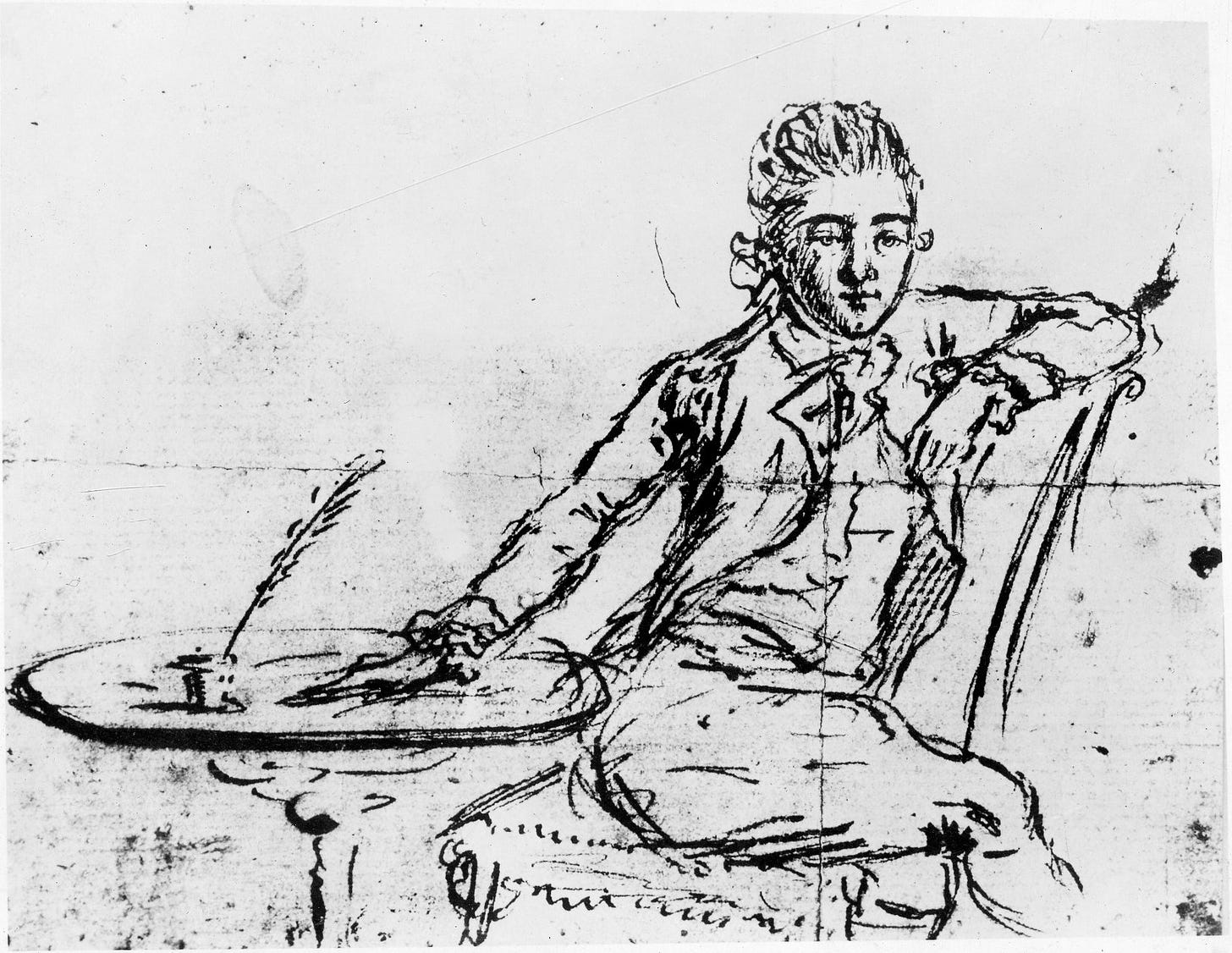On this day in 1780, the head of the British Secret Intelligence, John André, writes a letter to British General Sir Henry Clinton. André had been captured and sentenced to death as a spy. His plan to take West Point with the help of Benedict Arnold had been discovered.
That conspiracy had been unraveling for days. Only one week earlier, Arnold and André had met in person so they could lay their plans. After that meeting, Arnold believed that André had successfully returned to British lines.
But he hadn’t! Instead, André was captured as he attempted to finish the last few miles to his destination. (See September 21 and 22 history posts.)
At about the time of André’s capture, George Washington was preparing to visit West Point for a pre-planned inspection. Needless to say, that visit didn’t work out as planned. Arnold’s treachery was revealed, and the traitor escaped to a nearby British ship, leaving his wife (and co-conspirator) behind. She feigned a damsel in distress! The American officers believed her innocent. (See September 26 history post.)
Washington was shocked by this unexpected turn of events. He wrote a letter to Nathaniel Wade. It opened with the simple and gloomy statement: “General Arnold is gone to the Enemy.” A letter the next day spoke of the “treason as shocking as it was unexpected—General Arnold from every circumstance had entered into a plot for sacrificing West Point.” Washington’s general orders notified the army that “Treason of the blackest dye was yesterday discovered!”
By the time the dust settled, Arnold had gotten away, Mrs. Arnold had fooled the men around her, and poor André was the only one left to punish.
By and large, there was a lot of sympathy for André. Washington wrote: “I would not wish Mr André to be treated with insult; but he does not appear to stand upon the footing of a common Prisoner of War; and therefore, he is not entitled to the usual indulgencies they receive, and is to be most closely & narrowly watched.”
Indeed, General Washington had a bit of a dilemma on his hands. André had been discovered in civilian clothing, not his uniform. He had not come under a flag of truce. These two facts made him seem more like a spy. The Continental Congress had been very clear about the fate that awaited spies, resolving that persons “who shall be found lurking as spies in or about the fortifications or encampments of the armies of the United States . . . shall suffer death.” On the other hand, the British and Americans had a general understanding that captured generals would not be executed. André was an Adjutant General to the British Army.
Washington asked a Board of General Officers to consider the case. During those proceedings, André was honest about the fact that he had not come under a flag of truce. It was an honorable thing to do, but it also contributed to the Board’s recommendation that André be executed.
Washington let it be known that he would exchange André for Arnold, but the British would not agree. They worried that turning Arnold over would dissuade other Americans from coming to their side.
Clinton wrote Washington on October 4, offering to exchange Christopher Gadsden for André. Sadly, he was too late. André had already been hanged on October 2.
He’d been denied his one request: To be shot like a gentleman, rather than hanged like a spy.
Sources can always be found on my website, here.





Andre acted the part of a spy and received a spy's punishment. Not pretty, but expected. If the British had traded for Arnold there would have been a proper end to the story.
And now we know the rest of the story. I do have one question though. What ever became of Benedict Arnold and his wife and children.
❤️🇺🇸🇺🇸🇺🇸